This might be something most people take for granted here in Asia but which strikes my foreign eyes. I see Tiger brands and Tiger-named companies everywhere. I've been collecting a few examples recently. See below:
Singapore's Tiger Beer.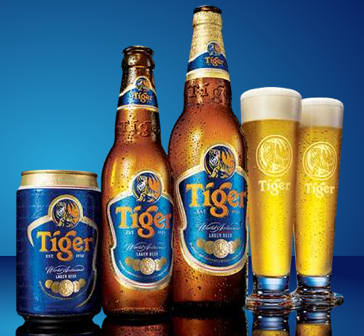 Japan's Onitsuka Tiger
Japan's Onitsuka Tiger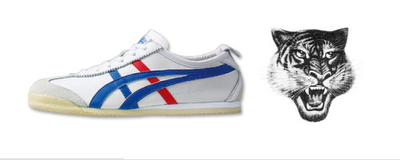
Singapore's Tiger Balm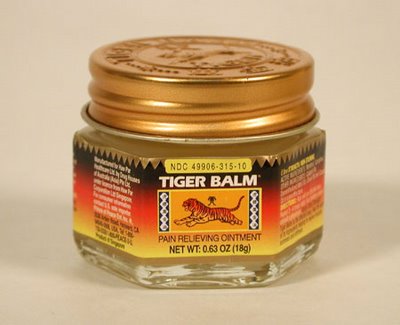 Asian Tigers K.C. Dat, a moving company
Asian Tigers K.C. Dat, a moving company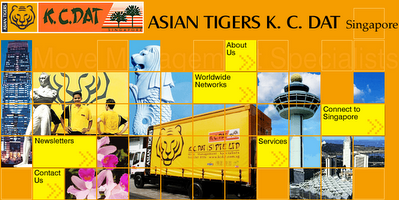
Tiger Air, a budget carrier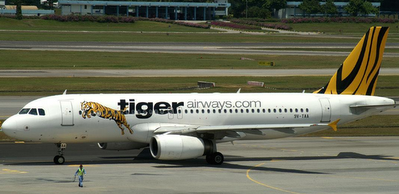
Japan's Tiger Appliances, a rice cooker maker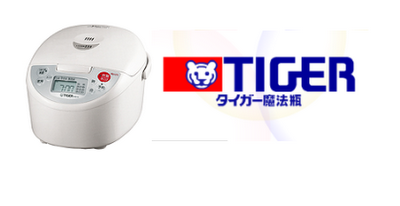 China's Tiger Generator
China's Tiger Generator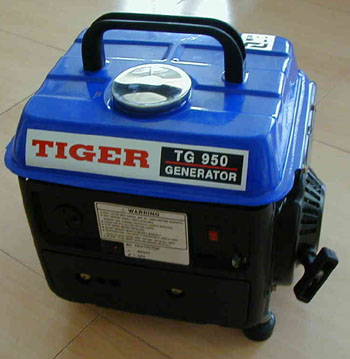 China's Guangzhou Tiger Head Battery
China's Guangzhou Tiger Head Battery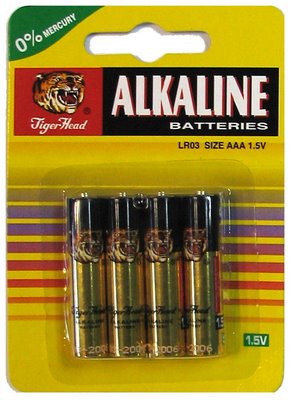 China's Hang Zhou Tiger, maker of Tiger One Lamps
China's Hang Zhou Tiger, maker of Tiger One Lamps
Korea's LG Tiger One External Laptop Batteries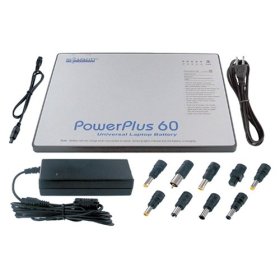 Japan's Hanshin Tigers
Japan's Hanshin Tigers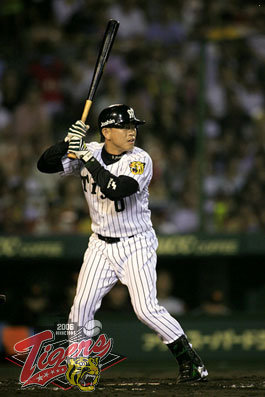 And so goes the list. I'm sure I'm missing some brands here.
And so goes the list. I'm sure I'm missing some brands here.
There's a simple reason for this profusion of Tiger brands throughout Asia. There are no lions here. Tigers therefore are the kings of animals. They've been part of Asian mythology for ages. There are countless tiger stories in most Asian countries, China, Korea, Vietnam, India, Japan.
The most important of all, of course, is the Chinese zodiac, the Tiger being one of the 12 animals that comprise the zodiac. A Tiger person is seen as a born leader. Famous Tigers include Queen Elizabeth II, Karl Marx, and Richard Branson. Apart from the zodiac there are several other tiger tales. In China's countryside, it's still common today for babies to wear these tiger shoes, with the belief that they'll help protect the babies from evil spirits.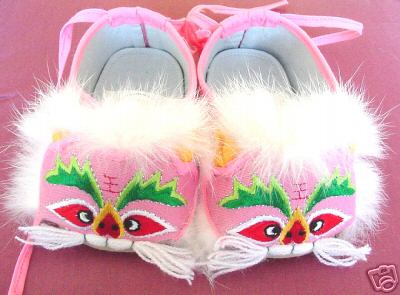 In Korea, there's a number of tiger inspired tales. And these tiger paintings are pretty common to spot hanging on the walls in Chinese and in Japanese residences.
In Korea, there's a number of tiger inspired tales. And these tiger paintings are pretty common to spot hanging on the walls in Chinese and in Japanese residences. Taking into consideration this background, it's clear to see that these Tiger brands are trying to tap into this rich cultural pot. Whether they are doing this intentionally or not is another question. But what strikes me most is that despite sharing the same name, they apparently are able to create different meanings for themselves. Tiger Beer, for example, is positioned as a cosmopolitan and cool beer brand, whereas nothing could be more traditional and local than Tiger Balm, a pain relieving ointment with an intense (some would say awful) menthol smell.
Taking into consideration this background, it's clear to see that these Tiger brands are trying to tap into this rich cultural pot. Whether they are doing this intentionally or not is another question. But what strikes me most is that despite sharing the same name, they apparently are able to create different meanings for themselves. Tiger Beer, for example, is positioned as a cosmopolitan and cool beer brand, whereas nothing could be more traditional and local than Tiger Balm, a pain relieving ointment with an intense (some would say awful) menthol smell.
This profusion of brands sharing the same name, as far as I remember, is not very common in the West.
But I found out that Tiger brands are not exclusively an Asia thing. While they don't exist in the same number as in Asia, there are quite a few examples. Let's take a look at some other Tiger brands around the world:
Detroit Tigers baseball team in the US. Apple's Tiger Operating System.
Apple's Tiger Operating System. There's also a big food company called Tiger Brands in South Africa, and a pipe company called Tigre (Tiger in Portuguese) in Brazil.
There's also a big food company called Tiger Brands in South Africa, and a pipe company called Tigre (Tiger in Portuguese) in Brazil.
And of course, there's Tony the Tiger. While not properly a brand, it's such a strong icon that it almost eclipses the Kellogg's brand. And finally there's Tiger (as in "Woods"), who, being half-Asian, could very well have entered the Asian tally as well.
And finally there's Tiger (as in "Woods"), who, being half-Asian, could very well have entered the Asian tally as well. Tiger Woods is well on his way to become the first sportsman to reach US$ 1 billion in earnings, which I believe easily put him among the top 3 most valuable brands in the above list. This Woods phenomenon will inevitably spur the creation of a new wave of Tiger brands, and probably will add another layer of meanings to the noun "tiger" as well. Speaking of that there's already speculation that "Tiger" is going to be one of the most popular baby names in the next decades. Can you imagine it? A new generation full of baby Tigers? Now, that would be something interesting to witness. Let's wait and see.
Tiger Woods is well on his way to become the first sportsman to reach US$ 1 billion in earnings, which I believe easily put him among the top 3 most valuable brands in the above list. This Woods phenomenon will inevitably spur the creation of a new wave of Tiger brands, and probably will add another layer of meanings to the noun "tiger" as well. Speaking of that there's already speculation that "Tiger" is going to be one of the most popular baby names in the next decades. Can you imagine it? A new generation full of baby Tigers? Now, that would be something interesting to witness. Let's wait and see.
Friday, November 17, 2006
tiger brands
Subscribe to:
Post Comments (Atom)

3 comments:
what a hilarious compilation :)
i wonder if it is worse than brands whose product names are prefixed with "i", "e-" or "x-"...
I'm still on the lookout for more examples! If you run into one, let me know.
Hi Ann, thanks for the kind comments. I haven't posted anything in a long while but might be back to writing again, who knows?
Nelson
Post a Comment